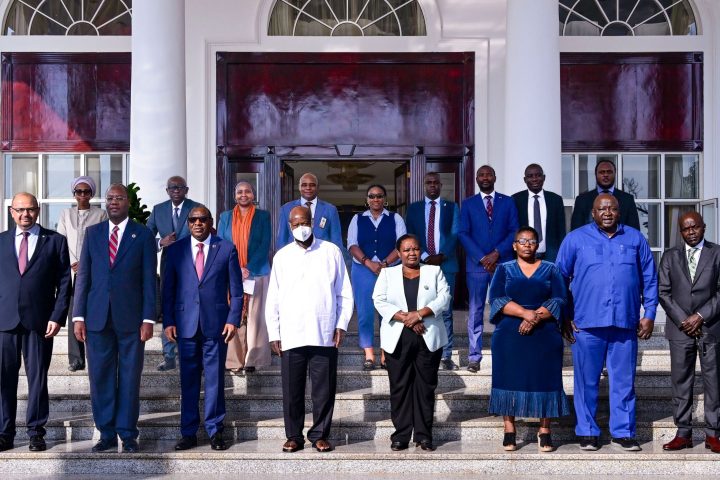HIGHLIGHTS
– Bhutan’s government has confirmed that it has been running a bitcoin mining operation since 2019 to subsidize power and hardware costs.
– The country is in negotiations with Bitdeer, a Nasdaq-listed mining company, to secure access to 100 megawatts of power for a bitcoin mining datacenter in Bhutan.
– The project has not been disclosed to its citizens or international partners, and it is unclear when mining began, where it is located, and whether the scheme has turned a profit.
The tiny Himalayan kingdom of Bhutan has confirmed that it has been running a bitcoin mining operation, as mystery surrounds the scale of its earlier cryptocurrency investments. Beneath the Himalayas, rivers fed by ancient glaciers supply the country with immense stores of hydroelectricity. The renewable resource has become an economic engine, accounting for 30% of the country’s gross domestic product, and fueling the homes of nearly all of its 800,000 residents.
Join our WhatsApp ChannelFor the past few years, Bhutan’s royal government has been quietly devising a new use for these reserves: powering its very own bitcoin mine. Sources familiar with Bhutan’s efforts to develop sovereign mining operations told Forbes that discussions have been occurring since 2020, though until recently, its government had never disclosed its plans. Bhutan sought to harness the country’s hydroelectric plants to power racks of mining machines that solve complex mathematical problems in order to earn bitcoin rewards.
READ: VIDEOS: Air Peace Flight Carrying Evacuee Nigerians From Sudan Arrives Abuja
Once completed, this would make Bhutan one of the only countries to run a state-owned mine, alongside El Salvador. On Saturday, days after Forbes contacted Bhutanese officials with questions about the mining scheme, a government representative confirmed to local newspaper The Bhutanese that it had begun mining “a few years ago as one of the early entrants when the price of Bitcoin was around USD 5,000.” It explained that the earnings go towards subsidizing power and hardware costs.
READ ALSO: Sudan latest: Over 100,000 Have Now Fled, Says UNHCR
Bhutan’s Ministry of Finance did not respond to a list of questions from Forbes about the scope of the enterprise. It’s unclear when mining began, where it’s located and whether the scheme has turned a profit. As for the start date, bitcoin was valued at $5,000 in April 2019. It’s also unclear why Bhutan never disclosed the project to its citizens or international partners.
Bhutan is also in negotiations with Nasdaq-listed mining company Bitdeer, which was founded by former Chinese billionaire Wu Jihan. This month, Bitdeer revealed to investors in a stock market update that it was in talks to secure access to 100 megawatts (MW) of power for a bitcoin mining data center in Bhutan, slated to break ground this quarter. The Singapore-based firm — one of the world’s largest bitcoin miners — listed on the Nasdaq earlier this month through a $1.1 billion merger with a blank check company. Neither Bitdeer nor Bhutanese officials responded to requests for comment on the deal.
A partnership with the kingdom would increase Bitdeer’s mining capacity, which is second only to bankrupt Texas-based Core Scientific in scale, by about 12%, adding to its data centers in Washington, Texas, and Norway. “We expect to generate 100 MW out of the 550 MW power supply from Bhutan, where the construction of mining data center is expected to begin in the second quarter of 2023 and complete in the third quarter of 2024,” Bitdeer said in an investor update on 19 April. The announcement didn’t specify who would ultimately own it.
Tucked between China, India, and Nepal, Bhutan is perhaps best known for its emblematic “thunder dragon,” Buddhist monasteries, and commitment to “gross national happiness” over domestic product. However, the isolated nation has spent several years cultivating a significant crypto portfolio as well. Forbes previously reported that Bhutan’s state-owned holding company, Druk Holding & Investments, covertly poured millions of dollars into cryptocurrency holdings, which were inadvertently exposed by the bankruptcies of lenders BlockFi and Celsius. While these investments were made through a sovereign entity created to manage the country’s wealth on behalf of its people, its citizens were never told.
In the past year, there have been numerous reports of cyber attacks targeting businesses, governments, and individuals alike. With the increasing reliance on digital infrastructure, cyber attacks have become more sophisticated and difficult to prevent. From ransomware attacks to phishing scams, cyber criminals have found ways to exploit vulnerabilities in computer systems and networks, causing millions of dollars in damages.
One of the most significant cyber attacks of the year was the ransomware attack on Colonial Pipeline, a major fuel pipeline operator in the United States. The attack, which occurred in May 2021, caused widespread panic and fuel shortages in several states. The hackers, believed to be based in Russia, used a ransomware variant called DarkSide to encrypt Colonial Pipeline’s data and demanded a ransom of $4.4 million in Bitcoin. The company paid the ransom, but the incident highlighted the vulnerability of critical infrastructure to cyber attacks.
Another notable cyber attack was the SolarWinds attack, which targeted multiple government agencies and private companies. The attack, which was discovered in December 2020, was attributed to a state-sponsored hacking group believed to be based in Russia. The hackers used a backdoor in SolarWinds’ software to gain access to the networks of numerous organizations, including the US Department of Defense and the US Department of Homeland Security.
Phishing attacks also continued to be a major problem in 2021, with cyber criminals using increasingly sophisticated methods to trick individuals into revealing sensitive information. In March 2021, Microsoft reported that it had detected a new phishing campaign that used convincing fake job offers to target people in the United States, Canada, and Europe. The campaign, which was believed to be the work of a group called “Nobelium,” was traced back to Russia.
As cyber attacks continue to increase in frequency and severity, governments and businesses are taking steps to improve cyber security measures. The US government, for example, recently launched a 100-day initiative to improve the cyber security of critical infrastructure, while businesses are investing in technologies such as artificial intelligence and blockchain to enhance their defenses against cyber threats.
All in all, the past year has seen an unprecedented number of cyber attacks, with businesses, governments, and individuals all falling victim to cyber crime. As we continue to rely more heavily on digital infrastructure, it is vital that we take steps to improve cyber security measures to protect ourselves from the growing threat of cyber attacks.




















Follow Us